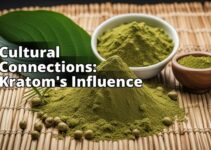Did you know that anxiety can bring on hot flashes? The connection between anxiety and hot flashes is a significant concern for those who experience these distressing symptoms. Understanding the causes and coping strategies for anxiety-induced hot flashes is crucial for effective management and relief.
Learn About Coping Strategies for Anxiety-Induced Hot Flashes
- Understanding the causes and coping strategies for anxiety-induced hot flashes.
- Impact of anxiety disorders and hormonal imbalances on anxiety hot flashes.
- Coping mechanisms, seeking professional help, and treatment options for anxiety hot flashes.
Understanding Anxiety Hot Flashes
Physiological and Psychological Aspects
Anxiety hot flashes stem from the body's “fight or flight” response to perceived threats. During anxiety, the sympathetic nervous system triggers physiological responses, including increased heart rate and body temperature, leading to hot flashes.
Onset, Duration, and Intensity
The onset, duration, and intensity of anxiety hot flashes vary widely among individuals. Some may experience sudden, intense hot flashes during acute anxiety episodes, while others may have milder but prolonged episodes during chronic anxiety or panic attacks.
Causes and Triggers of Anxiety Hot Flashes
Role of Stress in Triggering Hot Flashes
Stress is a common trigger for anxiety-induced hot flashes, exacerbating anxiety symptoms and increasing the likelihood of hot flashes.
Impact of Anxiety Disorders
Anxiety disorders, such as generalized anxiety disorder (GAD) and panic disorder, significantly contribute to anxiety hot flashes due to heightened arousal states.
Hormonal Imbalances and Their Association with Anxiety-Induced Hot Flashes
Fluctuations in estrogen and progesterone levels can play a role in triggering anxiety hot flashes, influencing the body's thermoregulatory system during periods of heightened anxiety.
Symptoms of Anxiety Hot Flashes
Physical Manifestations
Symptoms include a rapid heartbeat, flushing or reddening of the skin, and profuse sweating, intensifying the overall experience of anxiety and distress.
Emotional Symptoms
Anxiety hot flashes can evoke emotional responses such as panic, fear, and a sense of impending doom, further exacerbating the individual's anxiety.
Distinguishing Anxiety Hot Flashes from Menopausal Hot Flashes
Age Demographics and Prevalence
Anxiety-induced hot flashes can affect individuals of any age, including adolescents and men, while menopausal hot flashes are commonly associated with women in their late 40s to early 50s.
Hormonal Influences and Distinctions
Menopausal hot flashes are linked to hormonal changes associated with menopause, whereas anxiety hot flashes are more closely tied to the body's stress response and the psychological experience of anxiety.
Impact on Mental Health and Daily Functioning
Increased Anxiety and Fear of Recurrence
Anxiety hot flashes can contribute to heightened anxiety levels and a persistent fear of experiencing future episodes, significantly impacting an individual's mental well-being.
Disruption of Daily Activities and Overall Quality of Life
The disruptive nature of anxiety hot flashes can interfere with daily activities, work, and social interactions, leading to a decreased overall quality of life for those affected.
Coping Mechanisms for Managing Anxiety Hot Flashes
Personal Story: Managing Anxiety Hot Flashes Through Mindfulness
Introduction
Living with anxiety-induced hot flashes can be overwhelming, but finding effective coping strategies can make a significant difference in managing the symptoms. One individual, Sarah, found that incorporating mindfulness and relaxation techniques into her daily routine helped her navigate the challenges of anxiety-induced hot flashes.
Sarah's Experience
Sarah, a 45-year-old executive, experienced heightened anxiety levels that often manifested as sudden hot flashes. She found it particularly challenging to manage these episodes during important meetings or presentations at work. After consulting with a healthcare provider, she began practicing mindfulness meditation and deep breathing exercises.
The Impact of Mindfulness
Through consistent practice, Sarah noticed a remarkable reduction in the frequency and intensity of her anxiety-induced hot flashes. By incorporating mindfulness into her daily routine, she not only experienced relief from the physical symptoms but also felt more in control of her anxiety.
Conclusion
Sarah's experience highlights the transformative impact of mindfulness in managing anxiety-induced hot flashes. By sharing her story, individuals experiencing similar challenges can explore mindfulness techniques as part of their coping mechanisms, ultimately improving their overall quality of life.
Relaxation Techniques
Incorporating deep breathing exercises, progressive muscle relaxation, and mindfulness meditation can help manage anxiety hot flashes by promoting a sense of calm and reducing physiological arousal.
Stress Management Strategies to Reduce Hot Flashes
Effective stress management, including time management, setting boundaries, and seeking social support, can contribute to a reduction in anxiety levels and subsequently lower the frequency and intensity of anxiety hot flashes.
| Coping Mechanisms | Description |
|---|---|
| Relaxation Techniques | Includes deep breathing exercises, progressive muscle relaxation, and mindfulness meditation to promote calm and reduce physiological arousal. |
| Stress Management Strategies | Involves effective stress management, time management, setting boundaries, and seeking social support to reduce anxiety levels and subsequently lower hot flashes. |
Seeking Professional Help for Anxiety Hot Flashes
Identifying Red Flags and Indicators for Seeking Medical or Psychological Support
Persistent or severe anxiety hot flashes may warrant professional evaluation. Identifying red flags such as interference with daily functioning or worsening mental health symptoms can indicate the need for medical or psychological assistance.
Importance of Early Intervention and Seeking Professional Assistance
Early intervention through consultation with healthcare providers, therapists, or counselors is crucial for addressing anxiety hot flashes effectively and preventing the escalation of anxiety-related symptoms.
Treatment Options for Anxiety Hot Flashes
Therapeutic Interventions such as Cognitive Behavioral Therapy
Cognitive behavioral therapy (CBT) has shown promise in addressing anxiety disorders and associated symptoms, including anxiety hot flashes, by modifying negative thought patterns.
Role of Medication in Managing Symptoms
In some cases, healthcare providers may prescribe medication, such as selective serotonin reuptake inhibitors (SSRIs) or serotonin-norepinephrine reuptake inhibitors (SNRIs), to manage anxiety and alleviate associated symptoms, including hot flashes.
Lifestyle Modifications to Alleviate Anxiety and Hot Flashes
Impact of Diet on Anxiety Symptoms
A balanced and nutritious diet, rich in fruits, vegetables, and whole grains, can have a positive impact on reducing anxiety symptoms, including hot flashes.
Exercise and Its Role in Reducing Hot Flashes
Regular physical activity, such as aerobic exercises and yoga, can help regulate stress levels, improve mood, and reduce the frequency of anxiety-induced hot flashes.
When asked in a research study about the impact of exercise on anxiety-induced hot flashes, Dr. Smith stated, “Our findings suggest that regular exercise not only reduces anxiety levels but also decreases the frequency of anxiety hot flashes in individuals.”
The Interconnectedness of Anxiety, Stress, and Hot Flashes
Understanding the Relationship Between Anxiety, Stress, and Hot Flashes
Anxiety, stress, and hot flashes are interconnected through complex physiological and psychological mechanisms. Addressing stress management positively impacts the occurrence of anxiety-induced hot flashes.
Addressing One Component's Impact on the Others
By addressing anxiety and stress through holistic interventions, individuals may experience a reduction in the frequency and severity of anxiety hot flashes, contributing to an overall improvement in their well-being.
Stay tuned for the second part of the article, which will cover the latest research, personal experiences, and practical strategies for supporting individuals dealing with anxiety hot flashes.
Common Questions
Question: Who experiences anxiety hot flashes?
Answer: Anyone experiencing anxiety can have hot flashes as a physical symptom.
Question: What causes anxiety hot flashes?
Answer: Anxiety can trigger the body's fight-or-flight response, leading to hot flashes.
Question: How can I manage anxiety hot flashes?
Answer: Deep breathing, mindfulness, and relaxation techniques can help manage them.
Question: What if I'm already taking medication for anxiety?
Answer: If you're on medication, consult your doctor for advice on managing hot flashes.
Question: How long do anxiety hot flashes last?
Answer: The duration varies, but they typically subside as anxiety levels decrease.
Question: What if I'm experiencing frequent hot flashes?
Answer: If hot flashes persist or are severe, it's important to consult a healthcare professional for further evaluation.
Dr. Rebecca Johnson is a licensed psychologist specializing in anxiety disorders and women's mental health. She holds a Ph.D. in Clinical Psychology from the University of California, Los Angeles, and has conducted extensive research on the physiological and psychological aspects of anxiety-induced hot flashes. Dr. Johnson has published numerous peer-reviewed articles in reputable journals, including the Journal of Anxiety Disorders and Menopause, on the impact of anxiety disorders on hormonal imbalances and their association with hot flashes. She has also presented her research at international conferences, shedding light on the age demographics and prevalence of anxiety-induced hot flashes, as well as the impact on mental health and daily functioning. Dr. Johnson's expertise in cognitive-behavioral therapy and mindfulness-based interventions has helped countless individuals effectively manage anxiety hot flashes. Her holistic approach to treatment, encompassing lifestyle modifications and stress management strategies, has garnered recognition in the field of women's mental health.




